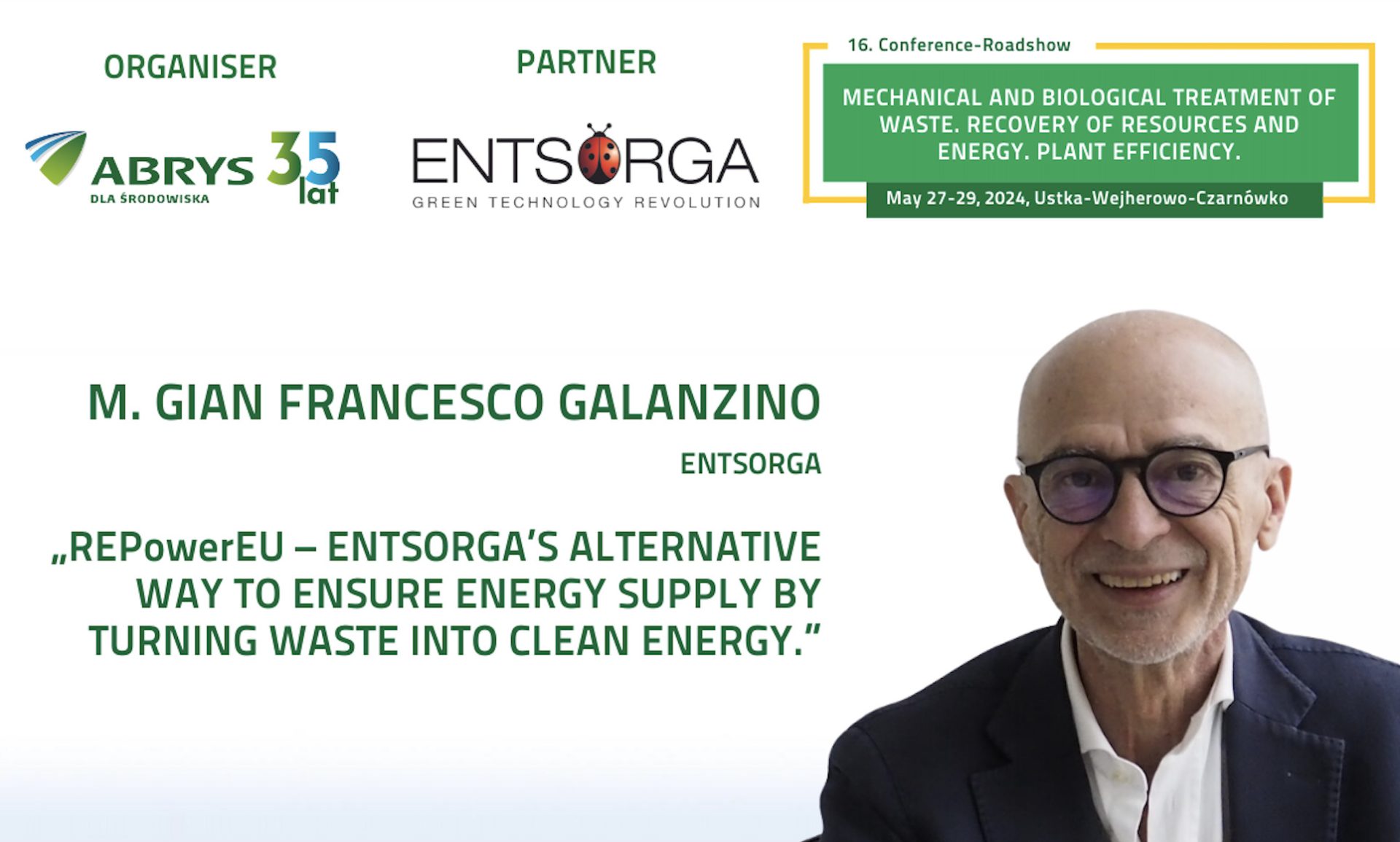At the end of May, we attended the conference held in Ustka, on the Baltic Sea, organized in line with the objectives of REpowerEU, the plan presented in 2022 by the European Commission to reduce the EU’s dependence on Russian fossil fuels and accelerate the energy transition.
The focus of our talk was the Cow®, the anaerobic digestion technology for recovering energy from waste, one of our most innovative solutions.
A winning mix of ingredients, for a state-of-the-art anaerobic digestion technology.
But what is the mix of ingredients that makes this technology, also awarded in the 2023 AD and Biogas Industry Awards, a winner? First and foremost, the use of minimal water.
“Over the years, we found that the anaerobic digestion process we used still produced too much liquid waste, which was expensive to treat. Therefore, in 2019, we started applying the semi-dry plug flow technology,” explained the AD of the Group, G. Francesco Galanzino. “This technology, as the name suggests, uses little water, which evaporates during the subsequent composting phase. The implementation of this solution, combined with our composting and refining systems, has been a real breakthrough for the circularity of the process: by eliminating liquid waste, we have been able to recover even more energy from organic material and virtually eliminate waste to be disposed of in landfills.”
The other secret of the Cow® is the plug-flow method: a special technique to keep the biomass well mixed inside the digester and facilitate the activity of the microorganisms, making fermentation more efficient. Constant temperature control also directly affects the success of the process and thus the amount of biogas produced. However, instead of heating the mass with traditional water pipes, Cow® uses a steam system, which is doubly advantageous in terms of yield and energy savings, reducing heating generation costs by up to 50%. Added to this is the high level of automation in waste handling, thanks to robotic overhead cranes, ensuring efficiency but above all safety, as operator interventions in the treatment area are minimized.
Last, but not least, is the direction of the entire process, which always remains within the company. In fact, all plants built with Cow® technology are supervised by a cloud-based control and management system. From our headquarters in Tortona, we monitor the systems in real time, anywhere in the world. Proprietary software, utilizing artificial intelligence and machine learning techniques, controls the processes and calibrates their parameters, allowing for remote intervention to prevent any issues. Being able to act proactively is essential to avoid dangerous plant shutdowns and to minimize management and maintenance costs.
An intervention to consolidate our decades-long presence as a technology provider.
As Entsorga, we have been present in Poland since 2014, when new rules for municipal waste management were introduced that made many of the then-existing plants inadequate. Here we have already provided technologies to build Mechanical Biological Treatment plants to stabilize undifferentiated Municipal Solid Waste and thus drastically decrease their emission of greenhouse gases, as well as anaerobic digestion plants to recover biogas, compost and renewable fuel from undifferentiated waste. These solutions offer clear environmental benefits and also help to reduce waste collection costs.
In addition to being a provider of cutting-edge technology, over the years Entsorga has also consolidated its expertise in creating “turnkey” plants, with its team of engineers overseeing all construction phases, from design to support. This formula, with its flexibility and scalability, makes our company the ideal partner for anyone looking to enhance existing plants or integrate them with one of the most promising anaerobic digestion technologies on the market. If necessary, we can also act as a developer: starting with the feasibility study and obtaining environmental permits, up to identifying investors interested in supporting the operations by working alongside private operators and public administrations. Our goal is to build 100% circular plants with guaranteed performance and low construction costs.

